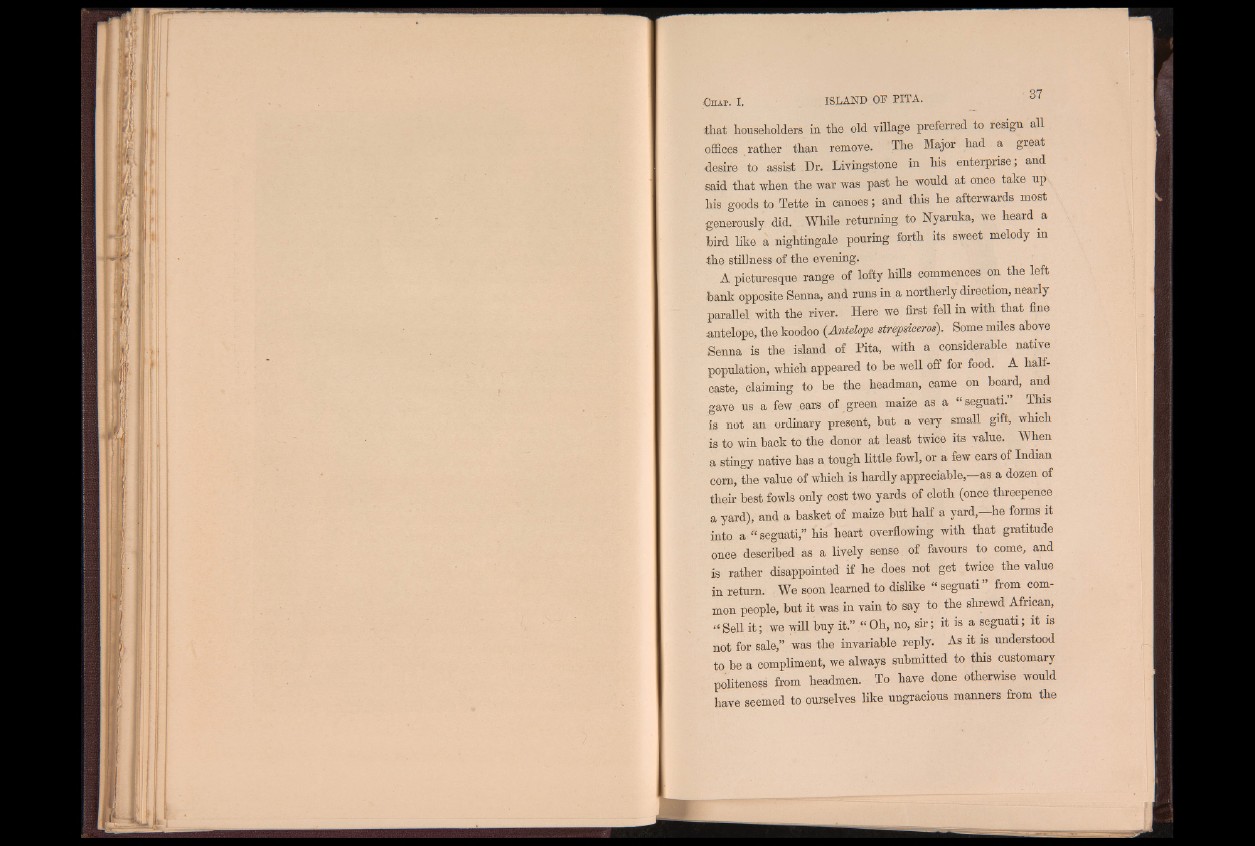
O h a p . I, ISLAND OF PITA.
that householders in. the old village preferred to resign all
offices rather than remove. The Major had a great
desire to assist Dr. Livingstone in his enterprise; and
said that when the war was past he would at once take up
his goods to Tette in canoes; and this he afterwards most
generously did. While returning to Nyaruka, we heard a
bird like a nightingale pouring forth its sweet melody m
the stillness of the evening.
A picturesque range of lofty hills commences on the left
bank opposite Senna, and runs in a northerly direction, nearly
parallel with the river. Here we first fell in with that fine
antelope, the koodoo {Antelope strepsiceros). Some miles above
Senna is the island of Pita, with a considerable native
population, which appeared to be well off for food. A half-
caste, p.1 aiming to be the headman, came on board, and
gave us a few ears of green maize as a “ seguati. This
is not an ordinary present, but a very small gift, which
is to win back to the donor at least twice its value. When
a stingy native has a tough little fowl, or a few ears of Indian
corn, the value of which is hardly appreciable,—as a dozen of
their best fowls only cost two yards of cloth (once threepence
a yard), and a basket of maize but half a yard,—he forms it
into a * seguati,” his heart overflowing with that gratitude
once described as a lively sense of favours to come, and
is rather disappointed if he does not get twice the value
in return. We soon learned to dislike “ seguati” from common
people, but it was in vain to say to the shrewd African,
“ Sell i t ; we will buy it.” “ Oh, no, sir; it is a seguati; it is
not for sale,” was the invariable reply. As it is understood
to be a compliment, we always submitted to this customary
politeness from headmen. To have done otherwise would
have seemed to ourselves like ungracious manners from the